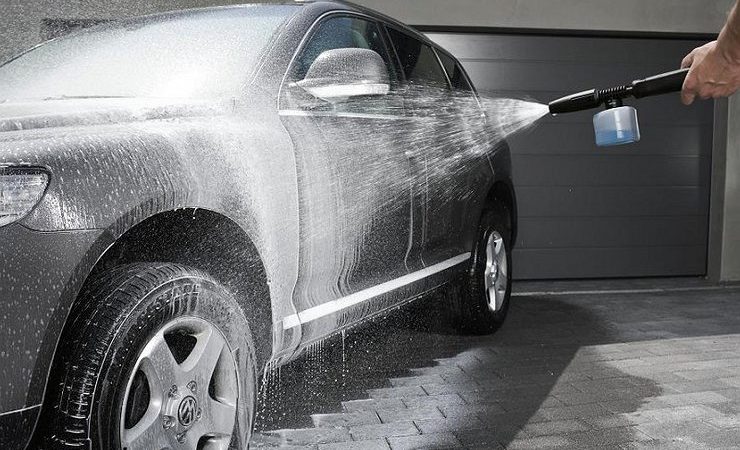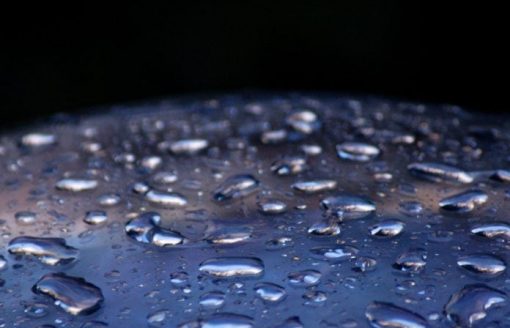As global temperatures continue to warm and droughts increase in number and severity, water is becoming an even more precious and vital resource. Water conservation, in turn, is increasing in importance. Everyday activities, such as washing our cars, now present us with ethical dilemmas as we consider their impact on our environment and natural resources.
Here, we look at water conservation as it pertains to evolving car wash technologies, the growing shift to recycling wash water and the regulation of commercial car washing in the United States.
A Changing Tide in Car Wash Tech
Adding everything from digital payment kiosks to water reclamation technology, commercial car washes are adapting their business practices to fit modern times — and it’s making a big difference. Traditional car washes use between 15 and 85 gallons per vehicle without water conservation equipment. Today’s versions use only eight to 70 gallons per vehicle when equipped with some form of water reclamation and/or filtration tech (depending on the type of car wash).
Though water reclamation technology has been used by professional car washes for the past 30 years, it has gained traction in the past few years as manufacturers and lawmakers aim for quality control and conservation. These reclamation systems are designed to conserve water and control water and sewer hookup costs. They also meet both local and federal regulations.
Commercial car washes are also incorporating other technology to make the customer experience easy and quick. Companies like WashCard design payment portals specifically for professional car washes that allow customers to make mobile payments and set up automated billing and cleaning schedules. Payment kiosks let consumers avoid the checkout line, and many car washes allow you to pay in advance online.
Not only that, customers are using smart devices to locate reliable car washes, read and write reviews online, and even compare prices and specials at various car washes. Car wash companies are using software programs that help run their businesses more efficiently, helping them perform tasks like managing inventory, allocating staff, assigning projects, scheduling meetings and running important data reports.
What’s more, car wash owners are using smartphones and tablets to change car wash settings with a tap of their finger, troubleshoot with off-site technicians, complete chemical reporting, establish maintenance schedules and take care of various business operations.
Wash Water Recycling
Today’s commercial car washes use less than 1 percent of the water consumed in a medium or large municipality, according to the Alliance for Water Efficiency. But in times of drought, even owners of water-efficient car washes can take additional measures to reduce the amount of fresh water their business uses.
Some commercial car wash owners are even shutting down their businesses several days a week in order to cut back on water usage during dry seasons, but that isn’t the only solution.
Water utilities in several cities across the U.S. — including San Antonio, Texas — have developed significant plans to reduce water usage during droughts. Even in rainy Seattle, Seattle Public Utilities has awarded conservation grants to two commercial car washes to install water reclamation systems. And the trend is only increasing in popularity.
Water conservation technology continues to be the most effective way for commercial car washes to sustainably reduce the wash water their businesses use. With the assistance of local authorities, water reclamation is becoming more prominent — especially in locales that don’t receive a lot of rainfall — allowing businesses to reuse and recycle water.
Commercial Car Wash Regulation in the U.S.
Since professional car washes can produce a massive amount of waste, the Environmental Protection Agency has released regulations and laws to reduce pollution and facilitate water conservation. Commercial car washes today use less than half of the fresh water you use when you wash your car at home or at outdated car washes that don’t incorporate water reclamation technology.
What’s more, the EPA’s Clean Water Act enforces strict regulations on commercial car washes to help conserve water as much as possible. According to Full Service Car Wash, “all waste water must be sent to a sewer treatment facility, which is kept separate from untreated storm sewers. The use of approved chemicals that are either treatable at these facilities or completely biodegradable are only used in commercial car washes.”
Professional car washing businesses have multiple underground tanks that isolate sediment from waste water before it’s sent to a sewer treatment facility. After the tanks are filled, a company that handles hazardous materials comes to clear them out and dispose of them in a safe manner.

WASHING YOUR CAR AT HOME IS LIKELY TO WASTE MORE WATER. IMAGE: ADOBE STOCK
Can’t I Just Wash My Car Myself?
Even though it may seem like you’re conserving water by doing the job yourself, the truth is, you’re likely wasting significantly more. Thanks to new technology and regulations, commercial car washes conserve much more water than at-home car washes. Consider the amount of water it takes for these different types of car washes:
- Self-serve foaming brush car wash: 1 to 2 gallons per minute per vehicle
- Self-service high-pressure wand car wash: 15 gallons per vehicle per three-minute cycle
- Regular tunnel car wash: 30 gallons per vehicle
- In-bay automatic car wash: 50 gallons per vehicle
- Touchless tunnel car wash: 80 gallons per vehicle
- At-home car wash: a whopping 100 or more gallons per vehicle
It’s safe to say that professional car wash businesses, local municipalities and even the EPA show great concern for both water conservation and the treatment of the chemical-laden waste water — which can only mean good things for the environment and the future of our fresh-water supply.









How Americans Are Embracing the Power of Their Homes